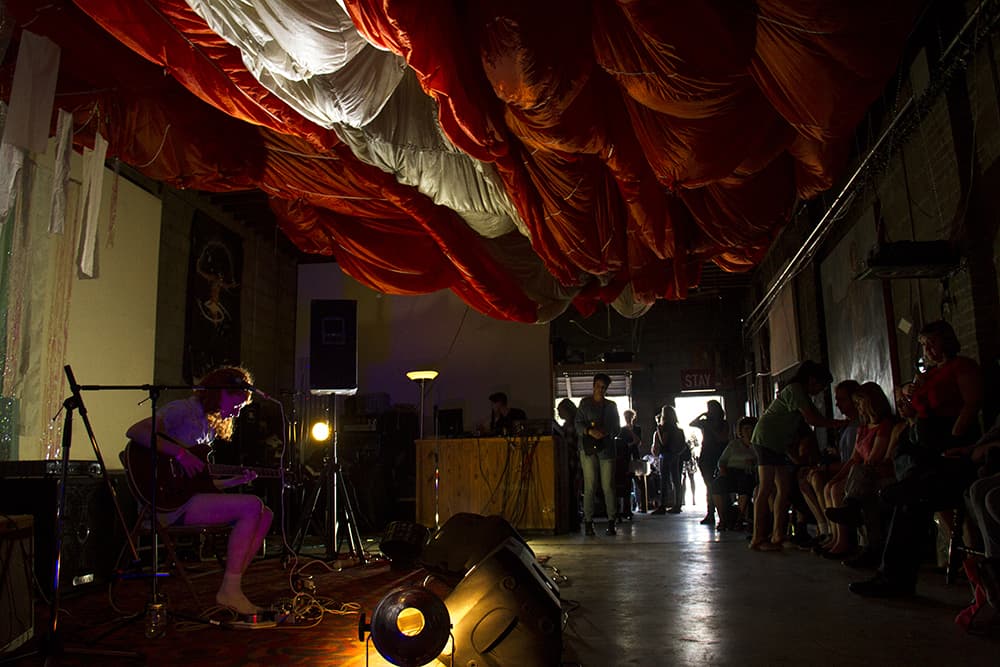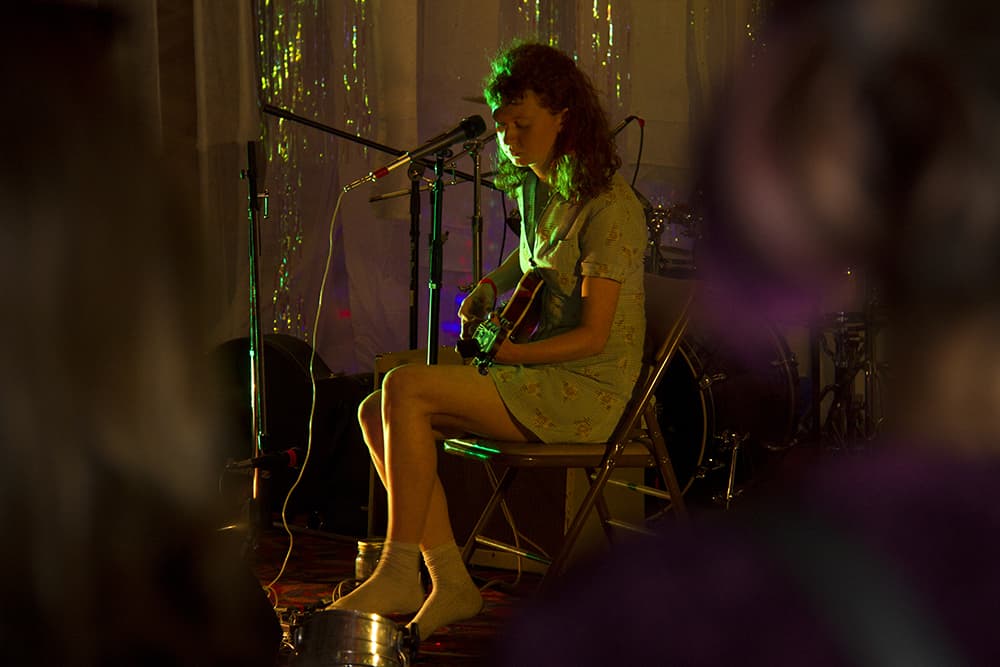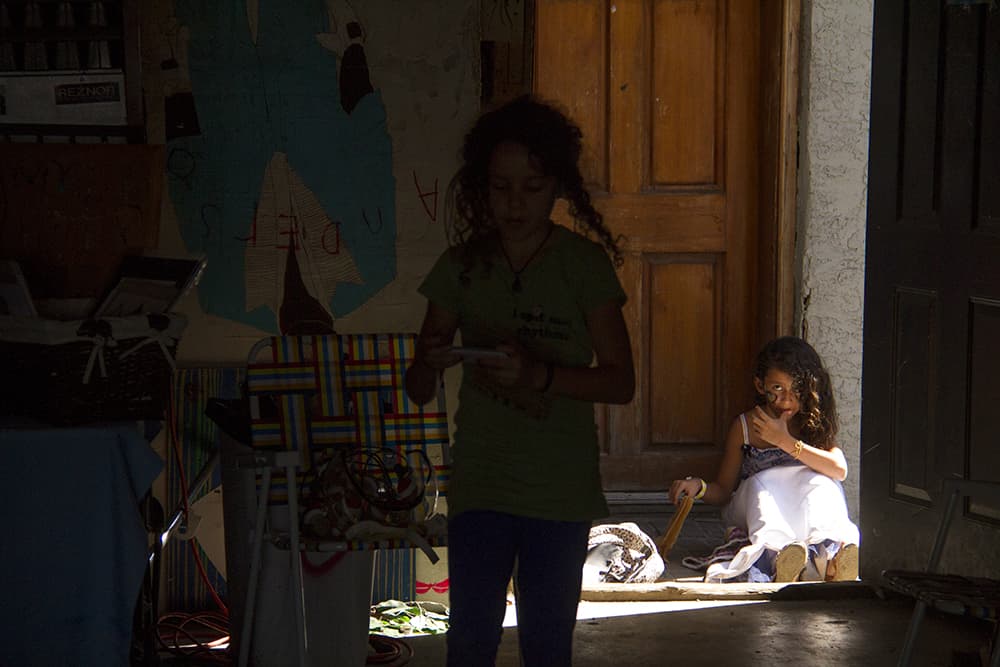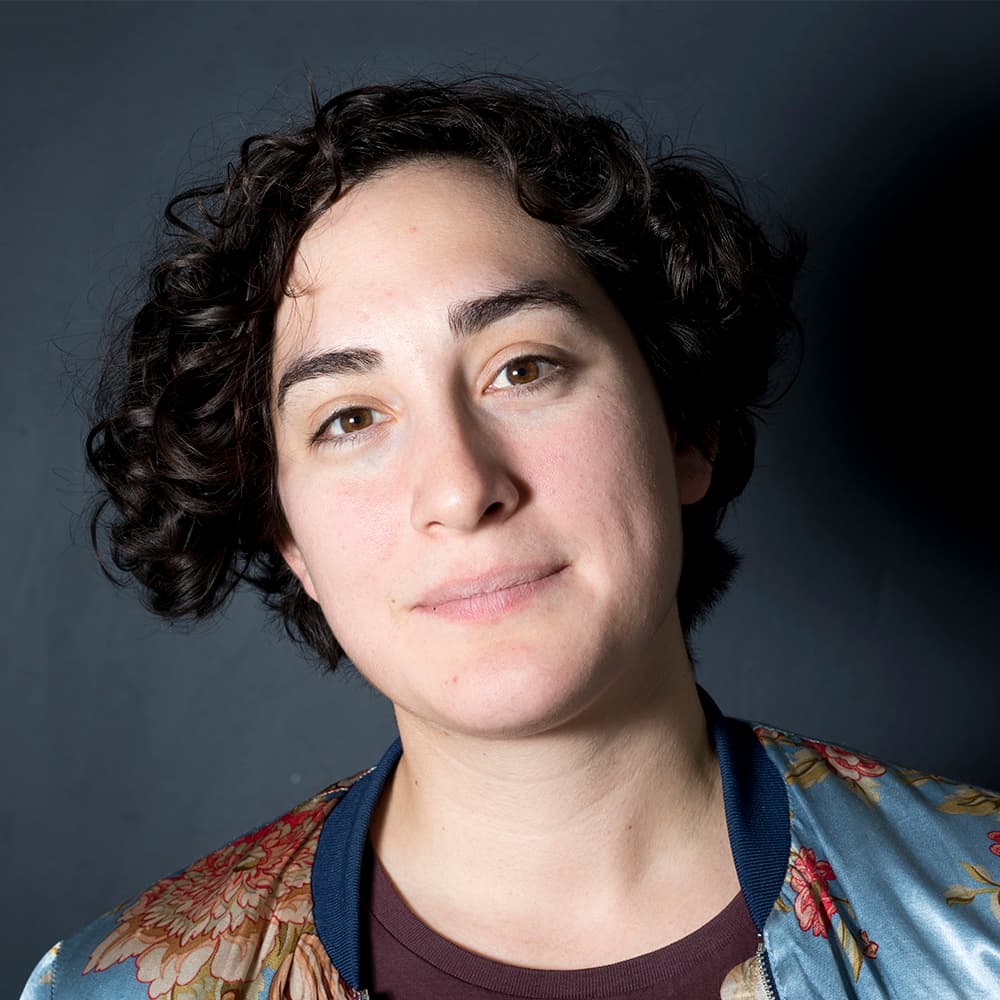
Update: Denver Fire describes hazards they found at Rhinoceropolis.
At least five people had to move out of a building on Brighton Boulevard after the Denver Fire Department made an unannounced inspection, and reports on social media indicate they were artists who lived -- at least some of the time -- in the DIY arts space Rhinoceropolis.
Denver Fire spokeswoman Melissa Taylor said that the five individuals were displaced but noted they had other living situations and did not require assistance.
Rhinoceropolis is a space that hosts music, parties and more for all ages. It's known as a venue where experimental and otherwise offbeat art has flourished. In other words, Rhinoceropolis is the heart of the underground.

A statement from the agency indicated that the inspection was prompted by reports from other people:
"Earlier this evening the Denver Fire Department was called to 3553 Brighton Boulevard by the Denver Police Department on reports of unsafe building conditions. An inspection by Fire Prevention Technicians revealed numerous serious fire code violations. Compounding the serious nature of this situation is the fact that it is believed as many as five adults were living in a back area of this address. An Order to Comply was issued stating that all sleeping units needed to be vacated immediately."
Outside Rhinoceropolis and its sister space Glob, notices from the City and County of Denver deemed both buildings "unsafe." Rhinoceropolis is at 3553 Brighton and Glob is at 3551 Brighton.
"No one shall occupy this space (sleeping) until the building is deemed safe," the notice read.
There have been reports in cities around the country of surprise inspections at artist spaces in the wake of the Ghost Ship Fire in Oakland. A fire in a warehouse there killed 36 people at a concert. The space had been converted into live-work spaces for artists, apparently without permitting, in the rapidly gentrifying city where many people struggle to find affordable housing.
John Gross, who holds the lease for Rhinoceropolis and lives there, declined to speak with Denverite Thursday afternoon when a reporter went to the space. He did not return a phone call.
In the past, Gross has stressed the importance of safety at DIY venues and worked to keep Rhinoceropolis clear of hazards and compliant with fire codes. In a post on Facebook, Rhinoceropolis founder Milton Melvin "Buddy" Croissant III said Denver Fire had inspected the building many times without incident over the last 11 years and was well aware that people were living there.
On social media, many decried the apparent decision to close the space.
Denver Fire said unannounced inspections to ensure the safety of Denver buildings are par for the course. But following the Oakland Ghost Ship fire, it seems that Denver has revisited at least one artist space in River North.
Before the inspection of Rhinoceropolis, Denver Fire spokeswoman Melissa Taylor said Thursday that the city operates in a different context from Oakland because recreational and medicinal marijuana grow operations occupy warehouse spaces.
"We don't have abandoned warehouses, we don't have warehouses that are really affordable places to set up an operation like that," Taylor said. "I can confidently say that we don't have any -- that we're aware of --situations where people are living in a warehouse situation like that."

But whether or not artists are living in warehouses, city officials acknowledged affordable housing is hard to come by for artists.
"I don't think we can get ahead of it," said Lisa Gedgaudas, Program Administrator for Denver Arts & Venues' Create Denver. "We can get near it or next to it."
The city is hoping that a new live-work concept from Artspace will play a big role in that. In the meantime, Gedgaudas says that inspections and the safety that they bring are important to the arts community too.
"We all need to kinda keep an eye on each other, so if you're in a neighborhood or you know of activities like that, you feel really comfortable to go to the city," she said.
That doesn't replace the important role that these spaces have in the creative economy though.
"These spaces are really the organic breeding ground for the rest of the creative economy," said Michael Seman, Director of Creative Industries Research and Policy for CU Denver's College of Arts and Media.
Rhinoceropolis' original lease holder says he's written a letter to Rep. Diana DeGette.
It reads, in part, "I lived in Rhinoceropolis for 6 years, many have lived there up until today. When I started this space, the landlord was fully aware that we were living in his property -- we built rooms to code, made sure there was safe exit, and maintained fire extinguishers. We passed fire code inspections regularly, and understand that the current tenants have up until this past summer. So to hear that after 11 years, that the DFD has now found this to be unacceptable, is disheartening to say the least."











